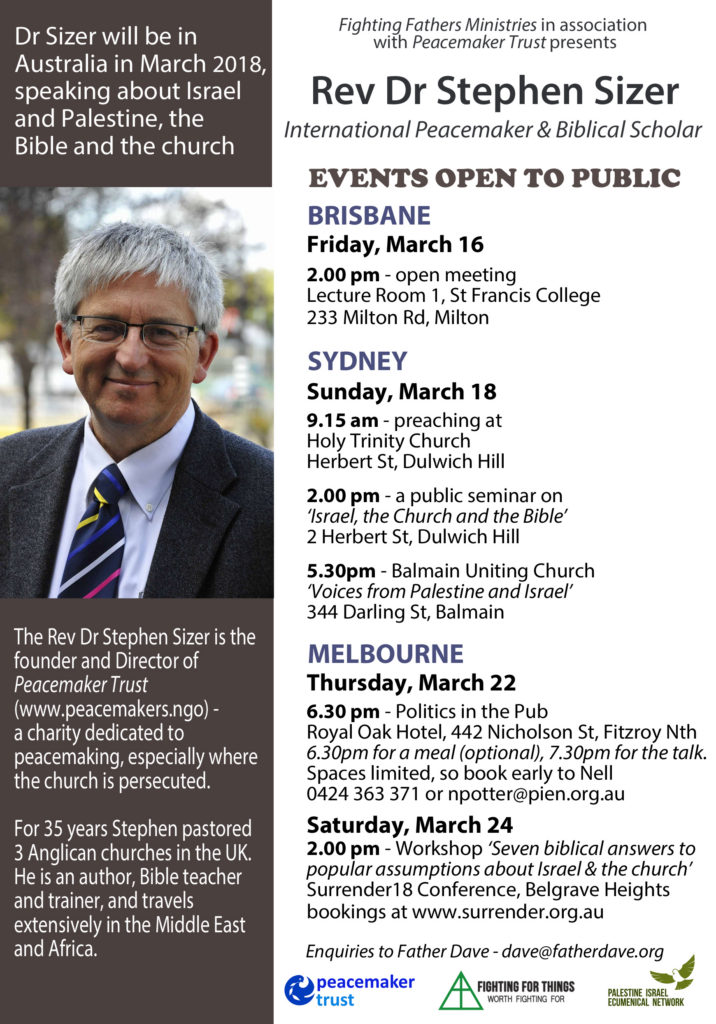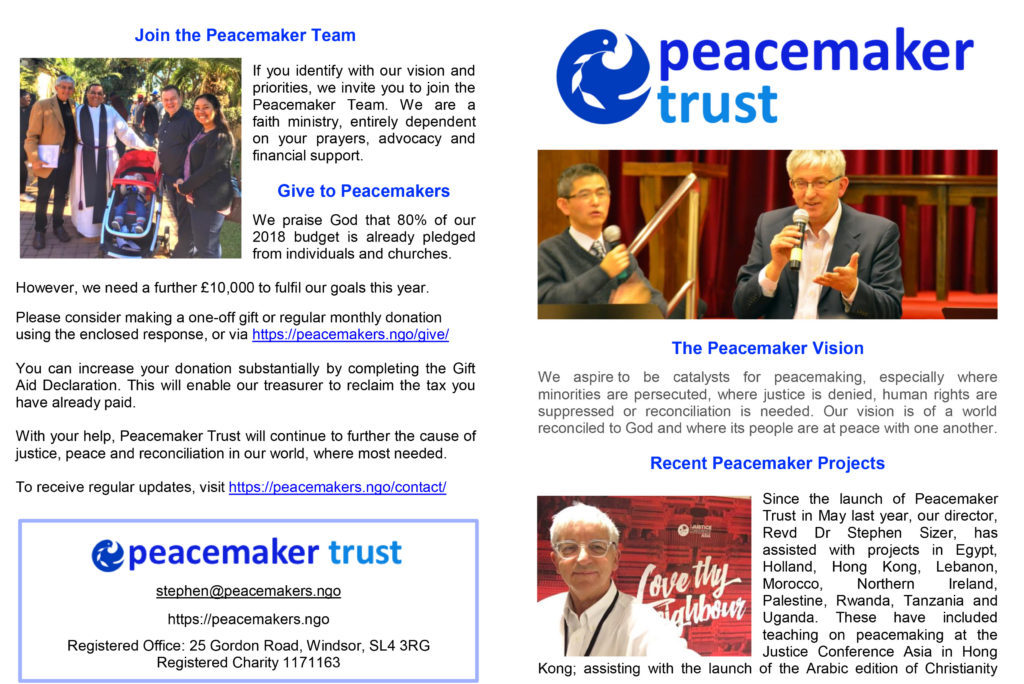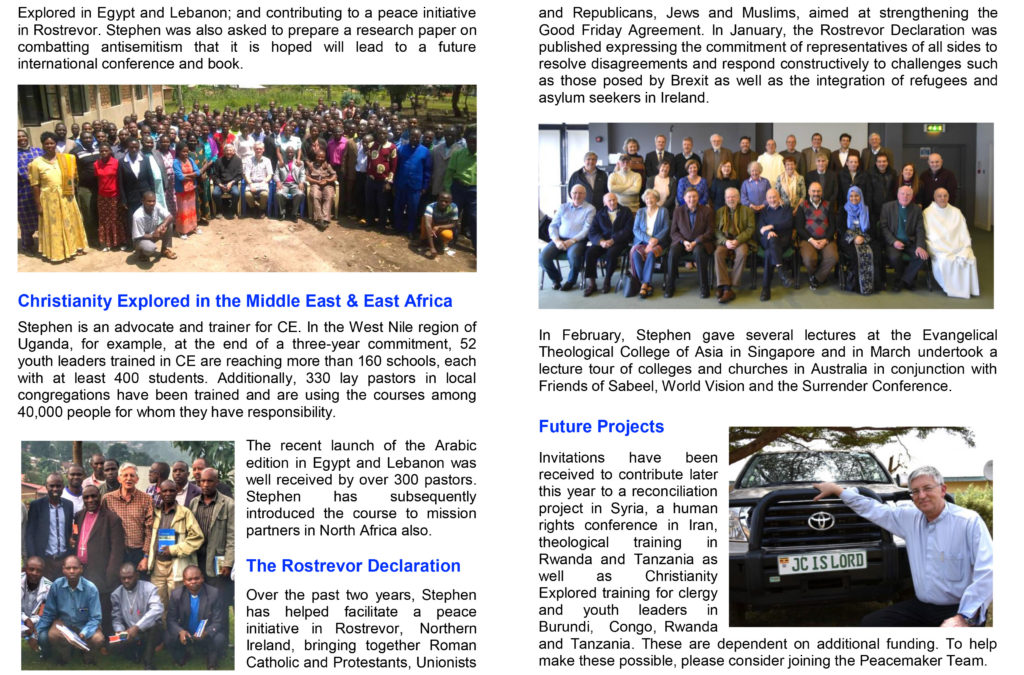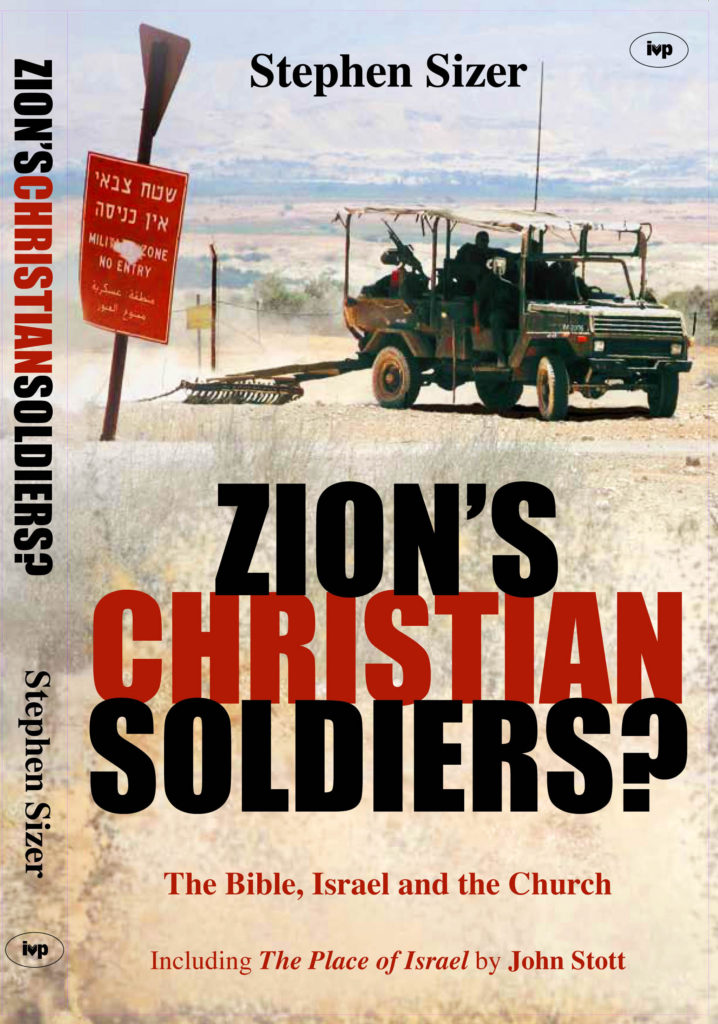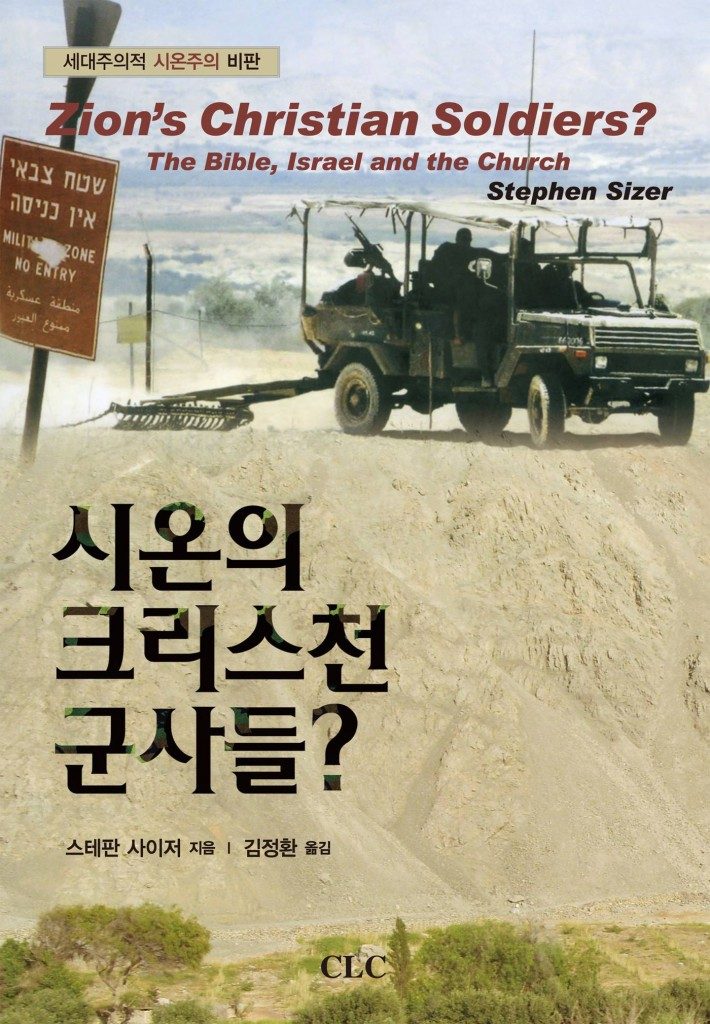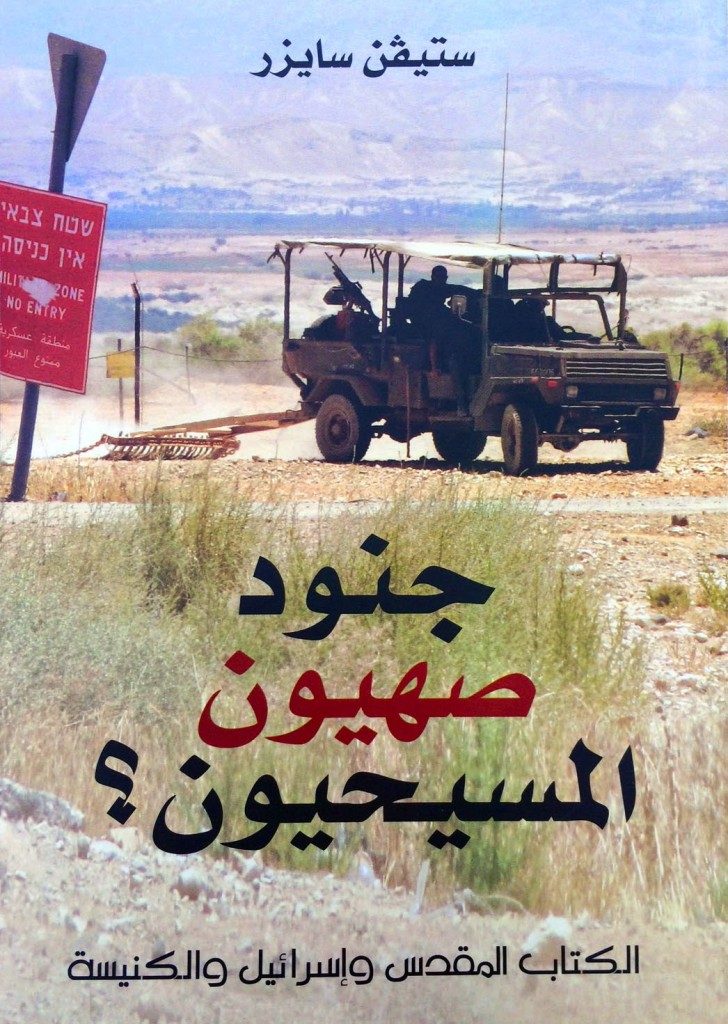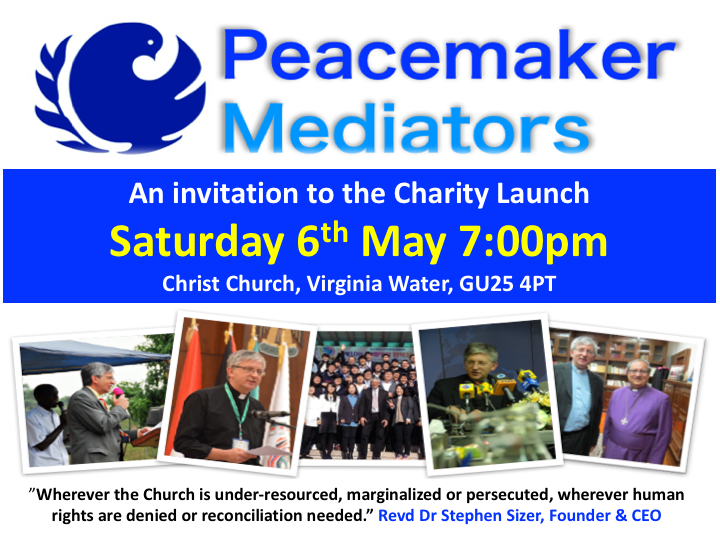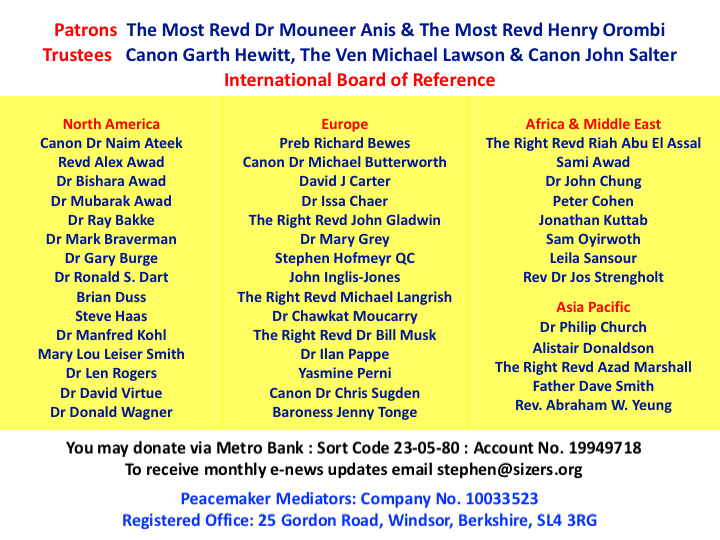Category Archives: Peacemaker
Blessed are the Peacemakers
Join the Peacemaker Team – Peacemakers Donation Response Form
To receive regular updates visit our website
The Rostrevor Declaration

Rostrevor Declaration: A meeting of significant members drawn from different churches and faiths on “Higher quality of disagreement”.
Like most other Western countries the island of Ireland is experiencing many challenges as it struggles to manage the growing diversity of communities within it. While the cultural and social fabric of our society becomes more rich and colourful, the relationships between some of our faith groups, reflecting a global trend as religious conflicts grow around the world, are becoming or in danger of becoming more tense. As global populations shift and more people are displaced by violence, war, climate change or simply lack of opportunity, it is likely that the religious demography will continue to change.
The growth of Islam in Ireland, North and South has challenged some of the historically Christian characteristics of the Island and its peoples; as, within both Christianity and Islam, and to some extent Judaism, there are traditions which see themselves as conservative and orthodox, and which makes claims to truth which are “particularist” or in some cases wholly “exclusivist”. The tensions between faith communities are reflective of what is happening globally as Christian, Muslim and Jewish leaders and their followers experience a fear of the other, which contributes to polarisation and radicalisation.
On the 10th March, 2017 a gathering of 30 significant members of the three Abrahamic faiths came together from Ireland North and South and Britain to pursue a conversation not with the aim of seeking, still less enforcing consensus, but rather fostering a Higher Quality of Disagreement. The gathering built some improbable relationships which bridged the divide between the groups of believers and created a sense of common purpose and an environment conducive to addressing contentious but common concerns.
Some principles were agreed as an outcome to our first gathering which have and will continue to be refined through further discussions which are distilled and the rolling report will be referred to as the Rostrevor Declaration :
Rostrevor Declaration
- The Scriptures of all three faiths, Jewish, Christian and Muslim, encourage us to treat others as we would like them to treat us. As members of faith communities we have a responsibility to act according to the scriptures and actively remind other members of our communities of this scriptural wisdom and thus deserving of respect.
- We encourage members of faith communities to remember that members of all faiths were created in the image of the heavenly Creator.
- Our places of worship should be regarded with respect and be places of safety and hospitality.
- We need to re-humanise rather than dehumanise community relations by reminding members of our believing communities of the positive characteristics of other faiths while protecting total academic freedom and respectful free speech as given in international instruments [Article 18 of the Universal Declaration of Human Rights and Articles 9 and 10 of the European Convention on Human Rights] and biblically proclaimed in 1 Peter 3:15.
- We will actively build mutual respect by advocating for the safety, freedom and well-being of one another, which includes standing up for the liberties of followers of other faiths to worship, manifest their faith and change their religion in this land and beyond, and we will speak out and be activists wherever we see persecution at home or overseas.
- We will help to reduce fear between our believing communities by advocating and facilitating education and understanding among and between the communities.
- We will encourage members of our communities not simply to speak the truth but strive to live it with integrity.
- We are committed to building friendship between members of our faith communities and letting the mercy of the heavenly creator inform how we relate to each other.

A third meeting took place at An Cuan in Rostrevor on 18th January 2018, bringing together faith leaders, politicians and artists to reflect on the theme of the Epiphany in Christian tradition and the relevance of the feast for our world today.
The meeting brought to a close this series of gatherings and at the same time began to explore how the Rostrevor Declaration could be implemented and applied to specific issues such as Brexit, the integration of asylum seekers and strengthening the Good Friday Agreement.
Christian Jihad: A Biblical Basis for Proactive Peacemaking
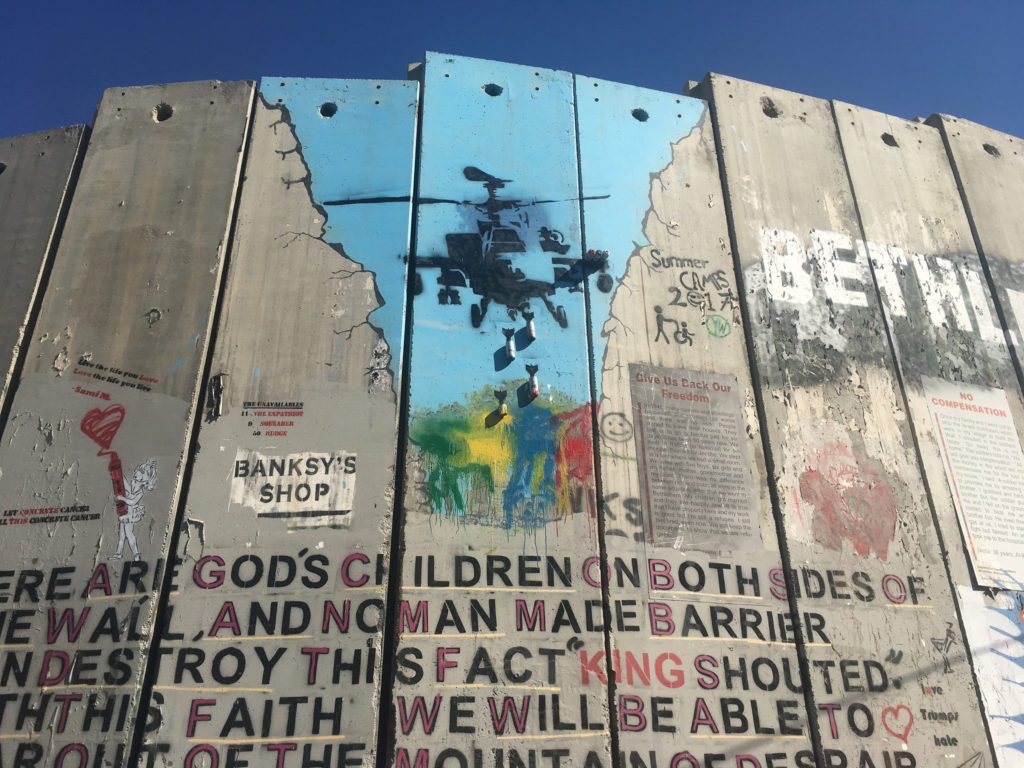 The term Jihad tends to be associated with Islam – indeed for some, the two words are synonymous. But the fact is violent extremism is found in all religions. I could easily quote Islamic or Jewish leaders who justify the use of violence in the name of God, but I will give you one example from a well-known Christian. Following the tragedy of 9/11 and destruction of the World Trade Centre in New York, multi-bestselling author and Christian journalist Anne Coulter, wrote,
The term Jihad tends to be associated with Islam – indeed for some, the two words are synonymous. But the fact is violent extremism is found in all religions. I could easily quote Islamic or Jewish leaders who justify the use of violence in the name of God, but I will give you one example from a well-known Christian. Following the tragedy of 9/11 and destruction of the World Trade Centre in New York, multi-bestselling author and Christian journalist Anne Coulter, wrote,
“We don’t need long investigations of the forensic evidence to determine with scientific accuracy the person or persons who ordered this specific attack. We don’t need an “international coalition.” We don’t need a study on “terrorism.” … We know who the homicidal maniacs are. They are the ones cheering and dancing right now. We should invade their countries, kill their leaders and convert them to Christianity. We weren’t punctilious about locating and punishing only Hitler and his top officers. We carpet-bombed German cities; we killed civilians. That’s war. And this is war.”[1]
In my opinion, too many evangelical leaders have also been quick to endorse Mr Donald Trump’s threat to “totally destroy North Korea.” Thankfully, many Christians in the USA as well as Europe and Asia repudiate views such as these as a gross distortion of Christianity and grave insult to the teachings of Jesus the Christ.
Chosen? Reading the Bible amid the Israeli-Palestinian Conflict by Walter Brueggemann: A Review
 In his short but passionate little book, Chosen? Walter Brueggemann addresses some of the important questions regarding God’s purposes for Israel and the Church. For example, are contemporary Israeli citizens the descendants of the Israelites in the Bible whom God called chosen? Was the promise of land to Abraham permanent and irrevocable? What about others living in the promised land? Who are the Zionists, and what do they believe? The subtitle of the book tells us where he intends to look for answers, “Reading the Bible amid the Israeli-Palestinian Conflict.” His publisher, Westminster John Knox, promises,
In his short but passionate little book, Chosen? Walter Brueggemann addresses some of the important questions regarding God’s purposes for Israel and the Church. For example, are contemporary Israeli citizens the descendants of the Israelites in the Bible whom God called chosen? Was the promise of land to Abraham permanent and irrevocable? What about others living in the promised land? Who are the Zionists, and what do they believe? The subtitle of the book tells us where he intends to look for answers, “Reading the Bible amid the Israeli-Palestinian Conflict.” His publisher, Westminster John Knox, promises,
“The reader will get answers to their key questions about how to understand God’s promises to the biblical people often called Israel and the conflict between Israel and Palestine today.”
Chosen? comprises 59 pages of scripture commentary in four short chapters, a Q&A with the author, a glossary and 20-page study guide to facilitate group discussion around each of the chapters. The four chapters are:
- Reading the Bible amid the Israeli-Palestinian Conflict
- God’s Chosen People, Claim and Problem
- Holy Land?
- Zionism and Israel
The book also contains very helpful guidelines for respectful dialogue first published by the Presbyterian General Assembly in 1992. Significantly, the title includes a question mark. I added a question mark to the titles of two of my own books: Christian Zionism: Roadmap to Armageddon? and Zion’s Christian Soldiers? The Bible, Israel and the Church.[i] Walter is recognising, as I did, that views differ on whether the Jews are God’s chosen people, even though, unlike me, he personally concludes that they are.
Fasting for Justice
 At 4 a.m. on May 27 — some 90 minutes before the start of Ramadan — a hunger strike by nearly 1500 Palestinian prisoners in Israeli jails came to an end, exactly 40 days after it was declared. They had refused food in protest at the denial of their human rights. The demands of the strike for freedom and dignity were straightforward – for the right to family visits, the ability to speak to their family by telephone, to receive medical care, not to be subject to isolation or to imprisonment without charge or trial under administrative detention.
At 4 a.m. on May 27 — some 90 minutes before the start of Ramadan — a hunger strike by nearly 1500 Palestinian prisoners in Israeli jails came to an end, exactly 40 days after it was declared. They had refused food in protest at the denial of their human rights. The demands of the strike for freedom and dignity were straightforward – for the right to family visits, the ability to speak to their family by telephone, to receive medical care, not to be subject to isolation or to imprisonment without charge or trial under administrative detention.
Two prominent Christian leaders, Gregory Lahham III, former Melkite Patriarch of Antioch, Alexandria and Jerusalem, and Archbishop Atallah Hanna of the Greek Orthodox Church in Jerusalem, joined in solidarity with the Palestinian prisoners as did many other people of faith around the world. Patriarch Gregory, who is 83 years old, said in an interview with Al-Mayadeen TV, “I say to the prisoners, we are with you in your sacrifice for Palestine.” Archbishop Atallah, said the prisoners’ cause is the “issue of all Palestinian people,” stressing his support for the prisoners’ just demands. He went on to say, “We belong to this land and we belong to this people who fights for freedom. We will always remain biased to the just Palestinian cause.” The Patriarch and Archbishop joined social activists and supporters all over the world in solidarity with the hunger strikers. Continue reading
Zion’s Christian Soldiers
Richard Bewes Commends Peacemaker Mediators
The Launch of Peacemaker Mediators
Jesus is the True Temple
 What is the most expensive property you can buy? A measly £19,950,000 will buy you Windsor Court in Englefield Green. But if you want a London address, One Hyde Park is on sale for £75 million. Knightsbridge on one side, the world’s biggest back garden on the other, and very little noise from the neighbours. Don’t like the rain? One Beverly Hills, California which is on sale for £68 million. But if you prefer to stay in Europe and need a little more sun in Summer that you will get in London, consider the Villa Leopolda on the French Riviera. Named after the former King of Belgium it can be snapped up for only £485 million. But the most expensive property? Currently, it is the Antilia Building in south Mumbai. 27 stories high. Three helipads on the roof, nine elevators in the lobby and space for 168 cars in the garage. A snip at £650 million.[1] These are the properties you can buy. What about those you can’t? Comfortably the most expensive residence in the UK, Buckingham Palace is valued at over £1 billion. The Palace houses 775 rooms, including 52 bedrooms, 19 state rooms, 188 staff rooms, 92 offices, and 78 bathrooms. But what is the most expensive property in the world? It is not Buckingham Palace. It is not the White House, the Kremlin or even the Vatican.
What is the most expensive property you can buy? A measly £19,950,000 will buy you Windsor Court in Englefield Green. But if you want a London address, One Hyde Park is on sale for £75 million. Knightsbridge on one side, the world’s biggest back garden on the other, and very little noise from the neighbours. Don’t like the rain? One Beverly Hills, California which is on sale for £68 million. But if you prefer to stay in Europe and need a little more sun in Summer that you will get in London, consider the Villa Leopolda on the French Riviera. Named after the former King of Belgium it can be snapped up for only £485 million. But the most expensive property? Currently, it is the Antilia Building in south Mumbai. 27 stories high. Three helipads on the roof, nine elevators in the lobby and space for 168 cars in the garage. A snip at £650 million.[1] These are the properties you can buy. What about those you can’t? Comfortably the most expensive residence in the UK, Buckingham Palace is valued at over £1 billion. The Palace houses 775 rooms, including 52 bedrooms, 19 state rooms, 188 staff rooms, 92 offices, and 78 bathrooms. But what is the most expensive property in the world? It is not Buckingham Palace. It is not the White House, the Kremlin or even the Vatican.

